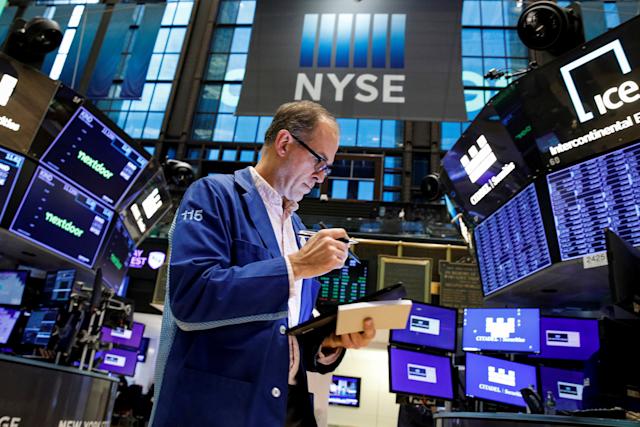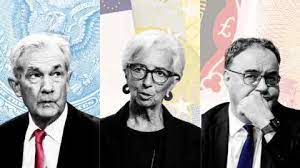The war in Ukraine has tended to increase uncertainty regarding inflation and growth prospects. When and with what consequences this war will end is pure speculation, but capital markets are expected to build a certain immunity to the headline risks in the coming weeks. The medium- to long-term consequences, on the other hand, could be significant. It is possible that we are at the beginning of a new bloc formation or a new Cold War. This would put a significant damper on globalization and further fuel higher structural inflation.
US equities lacked direction on the first trading day of December, following a big rally the day before. Fresh economic data sparked worries of a recession with the ISM Manufacturing PMI showing that factory activity shrank for the first time since the pandemic-induced blow. At the same time, consumer spending proved resilient once again in October and PCE inflation slowed more than expected. The Dow Jones pared some losses to close 0.6% lower, after falling by 1% early in the session. The S&P 500 ended little changed while the Nasdaq gained 0.1% in moderate volume. European equities rose for a second consecutive day on Thursday, with the regional Euro Stoxx 50 index rising 0.5% to close near levels not seen since late March, driven by sharp gains among technology shares.
Summary
- Asian equity markets fell on Friday as investors cautiously awaited a key US jobs report that could influence the rates outlook. Markets also tracked Covid developments in China after authorities appeared to have pivoted away from stringent restrictions. Shares in Australia, Japan, South Korea, Hong Kong and mainland China all declined.
- European equities and US equities are on track to edge lower ahead of a US jobs report that may shed light on the Fed’s path forward.
- Oil prices held steady this morning and were on track for a weekly rise for the first time since early November, benefiting mainly from China’s softening stance on Covid that sparked hopes for a rebound in demand from the world’s top crude importer. Meanwhile, European Union governments tentatively agreed on a $60 a barrel cap on Russian seaborne oil with an adjustment mechanism to keep the cap at 5% below market prices.
- US personal income rose 0.7% month-over-month (m/m) in October, above the consensus forecast calling for it to match September's unrevised 0.4% increase. Personal spending increased 0.8%, in line with the Street's expectations and compared to the prior month's unadjusted 0.6% advance. The September savings rate as a percentage of disposable income was 2.3%, down from September's negatively revised 2.4% rate.
- The PCE Deflator in the US rose 0.3% m/m, below expectations of a 0.4% rise, and matching September's unadjusted gain. Compared to last year, the deflator was 6.0% higher, in line with estimates and compared to the prior month's upwardly adjusted 6.3% rise. Excluding food and energy, the PCE Core Price Index rose 0.2% m/m, below forecasts of a 0.3% gain and September's 0.5% rise. The index was 5.0% higher y/y, matching estimates and after September's upwardly adjusted 5.2% rise.
- The November Institute for Supply Management Manufacturing Index in the US fell into contraction territory. The index declined to 49.0 from the prior month’s unrevised 50.2 reading, and versus the estimate calling for a decline to 49.7. The manufacturing sector contracted for the first time since May 2020 as new orders moved further below 50, production growth slowed, and employment dropped back into contraction territory.
- Salesforce posted adjusted Q3 earnings of $1.40 per share, above the expected $1.22, as revenues rose 14.0% y/y to $7.8 billion, roughly in line with expectations. However, the software company's subscription and support revenues came in slightly below forecasts, and its billings came in well below estimates. The company raised its full-year EPS outlook and reaffirmed its revenue guidance. Separately, the company announced that its Vice Chair and co-CEO Bret Taylor will step down.
- Kroger reported adjusted Q3 EPS of $0.88, above the $0.83 estimate, as revenues rose 7.2% y/y to $34.2 billion, topping the Street's forecast of $34.0 billion. The grocery store operator noted that its digital strategy aided results along with strong grocery demand. Same-store sales grew 6.9% y/y, north of the anticipated 4.0% increase. The company raised its full-year EPS and sales guidance.
- Tesla yesterday unveiled its first heavy-duty Semi truck at an event in the company’s Nevada plant, making its first foray into the trucking industry. The 18-wheeler truck has faced scepticism from industry experts who doubt battery electric trucks can take the strain of hauling hefty loads for hundreds of miles.






